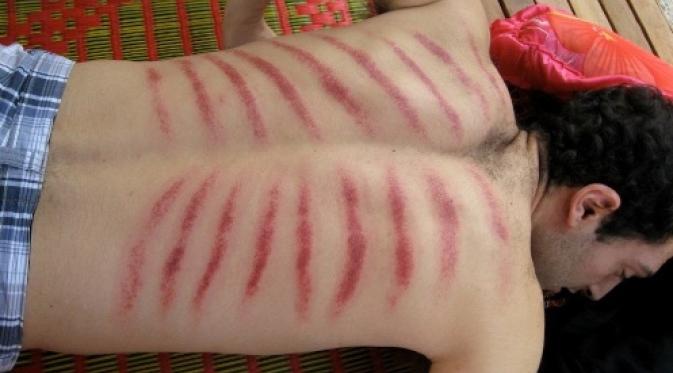
During your stay in Jakarta you are certain to come across some strange sights and baffling behavior. What seems strange or baffling to a foreigner may, however, be perfectly normal to an Indonesian. It all depends on one’s perception. The following hints are an attempt to explain some Indonesian habits and idiosyncrasies.
Coughing sneezing. It is not common for traditional and less educated people in Indonesia to carry handkerchiefs or tissues, and often they do not understand how diseases are spread. Therefore it is not unusual to see people coughing or sneezing openly without attempting to cover their mouth or nose. If your domestic staff or driver have this habit, it would be best to provide them with some tissues and ask them to cover their mouth or nose when coughing or sneezing.
Burping. It is not considered impolite to burp, and can even be regarded as a sign of appreciation of a good meal, therefore Indonesians generally do not excuse themselves after burping.
Spitting. This habit is particularly common during the fasting month. Some strict Muslims refuse to even swallow their own saliva while fasting, and spit saliva onto the ground or in the street. Gargling and spitting is part of the ritual cleansing before prayers.
Pinching. Indonesian parents tend to punish misbehaving children with a surreptitious pinch, often accompanied by a threat that something fearful will happen to them if they continue to misbehave. An open smack is considered very inappropriate. Here people also love to pinch the cheeks of a cute baby or child. It is intended as a gesture of affection, but can sometimes hurt if done too hard and can scare young children who are not accustomed to it. Discourage people from pinching your child’s cheeks by saying “Maaf, dia tidak suka” (Excuse me; he/she doesn’t like that).
“Kerok”. This is the name given to the custom of rubbing a coin on a person’s back in combination with the application of balsam in order to relieve aches and pains known as “masuk angin” or “wind coming in”. It can be quite shocking to see one of your staff members with red welts showing on their neck or back, as the coin is rubbed hard in a pattern of lines in order to break blood vessels under the surface. However it actually does not hurt the person who is suffering “masuk angin” but provides relief from pain.
Long thumbnails. Sometimes you will see an Indonesian man with one or two very long nails, usually the thumbnail. This is intended as an indication of his status as a non-manual laborer or worker.
Holding hands. It is not uncommon for people of the same gender to hold hands when walking together. This is a sign of friendship, not sexual preference. In some parts of the country it is considered improper for a girl and boy to hold hands or put their arms around each other. You will notice also that Indonesians rarely do things or go places alone. They always like to have a friend to accompany them and will feel pity for someone who is alone.
Squatting. For Indonesians squatting is a very natural and comfortable position and they can remain in such a position feeling totally relaxed for a long time. You will often see groups of men by the roadside just passing the time of day, smoking and chatting, and squatting. They are trained from infancy to assume this position and do it with their feet flat on the ground – something that is very difficult for most Westerners. For most Indonesians this is also the most natural and comfortable way to use the toilet, hence the prevalence of squat toilets even in some luxurious shopping malls and office buildings.
Wetness. On the subject of bathrooms, for Indonesians wet means clean, so traditional bathrooms are wet all over. A traditional Indonesian bathroom contains a trough of clean water, from which water is scooped up in a plastic dipper and poured over the body while standing on the floor of the bathroom. After soaping up all over, more dippers full of water are splashed over oneself to rinse off. It can be a bracing and refreshing experience as only cold water is used. Warm water is only for babies, the elderly or the sick. Indonesians are very conscious of personal cleanliness and bathe at least twice a day.
Mothballs. People here tend to use mothballs a lot, not only in closets but also in bathrooms as an air freshener. Frequently bathrooms are poorly ventilated and mothballs are used to cover up any smells, inhibit the growth of fungus and keep cockroaches at bay.
Provided by: Colliers International





